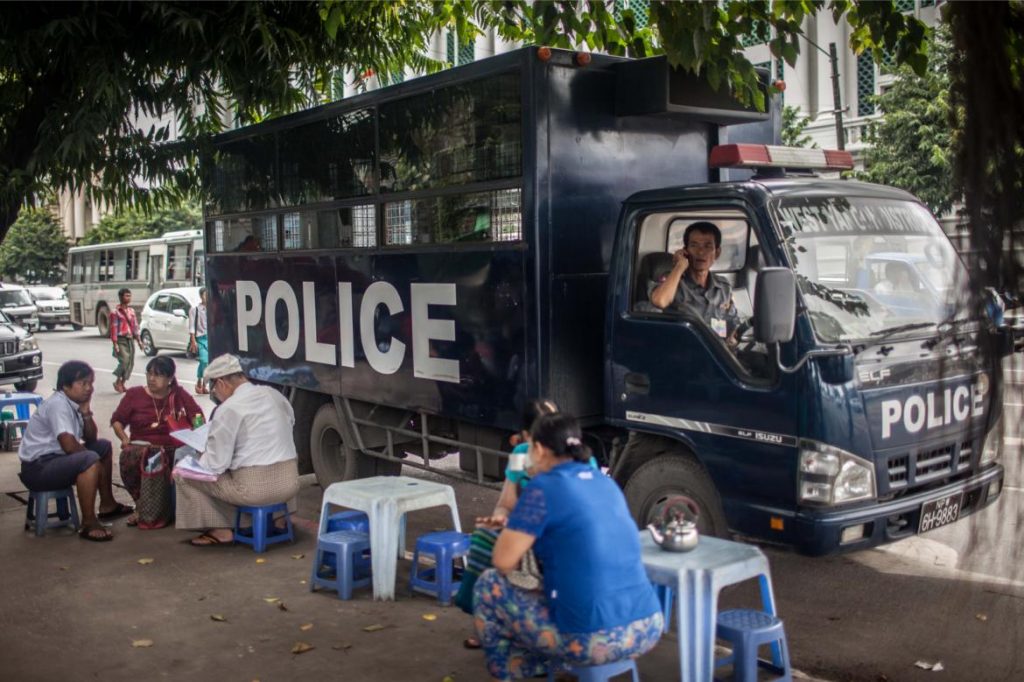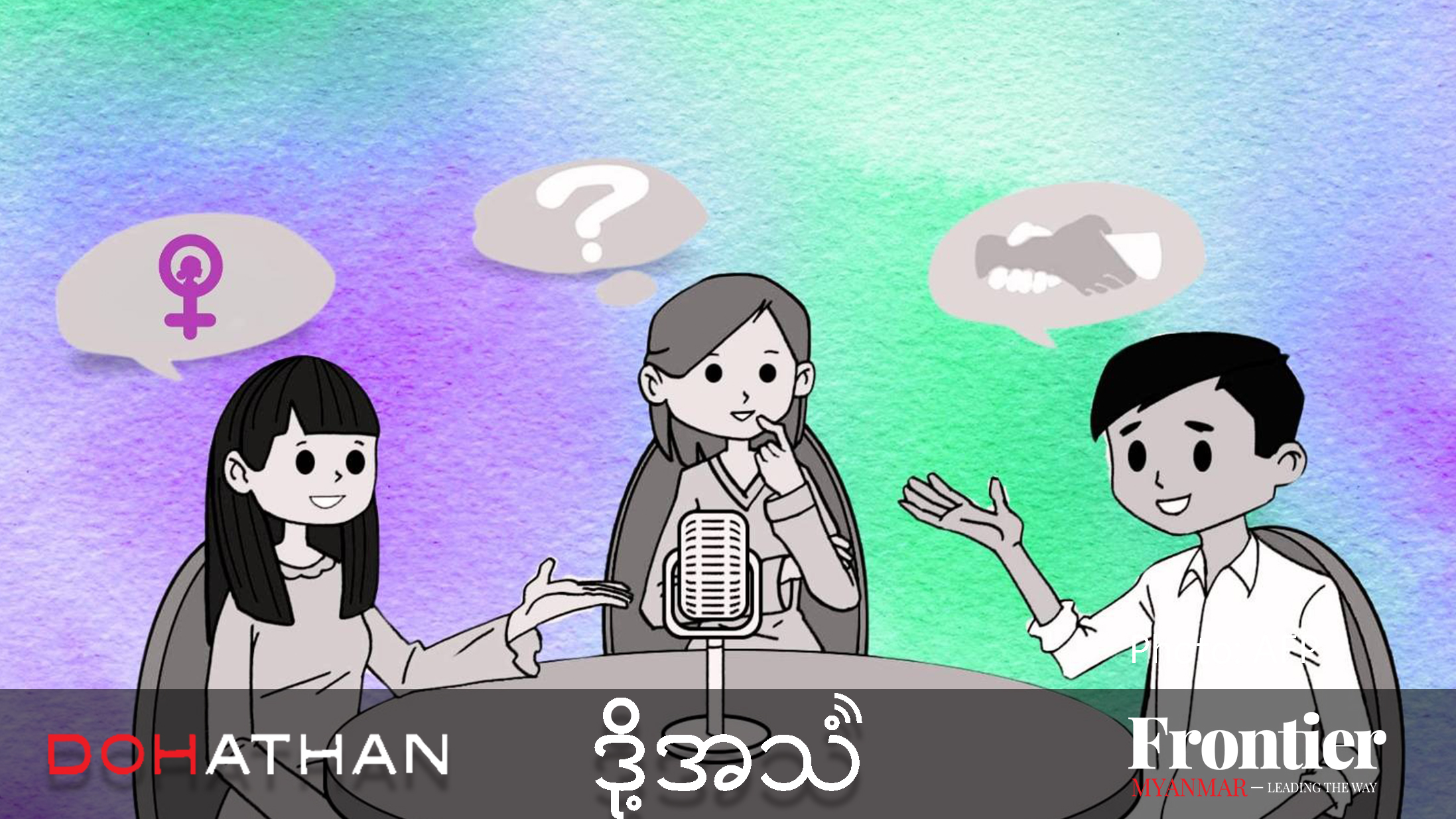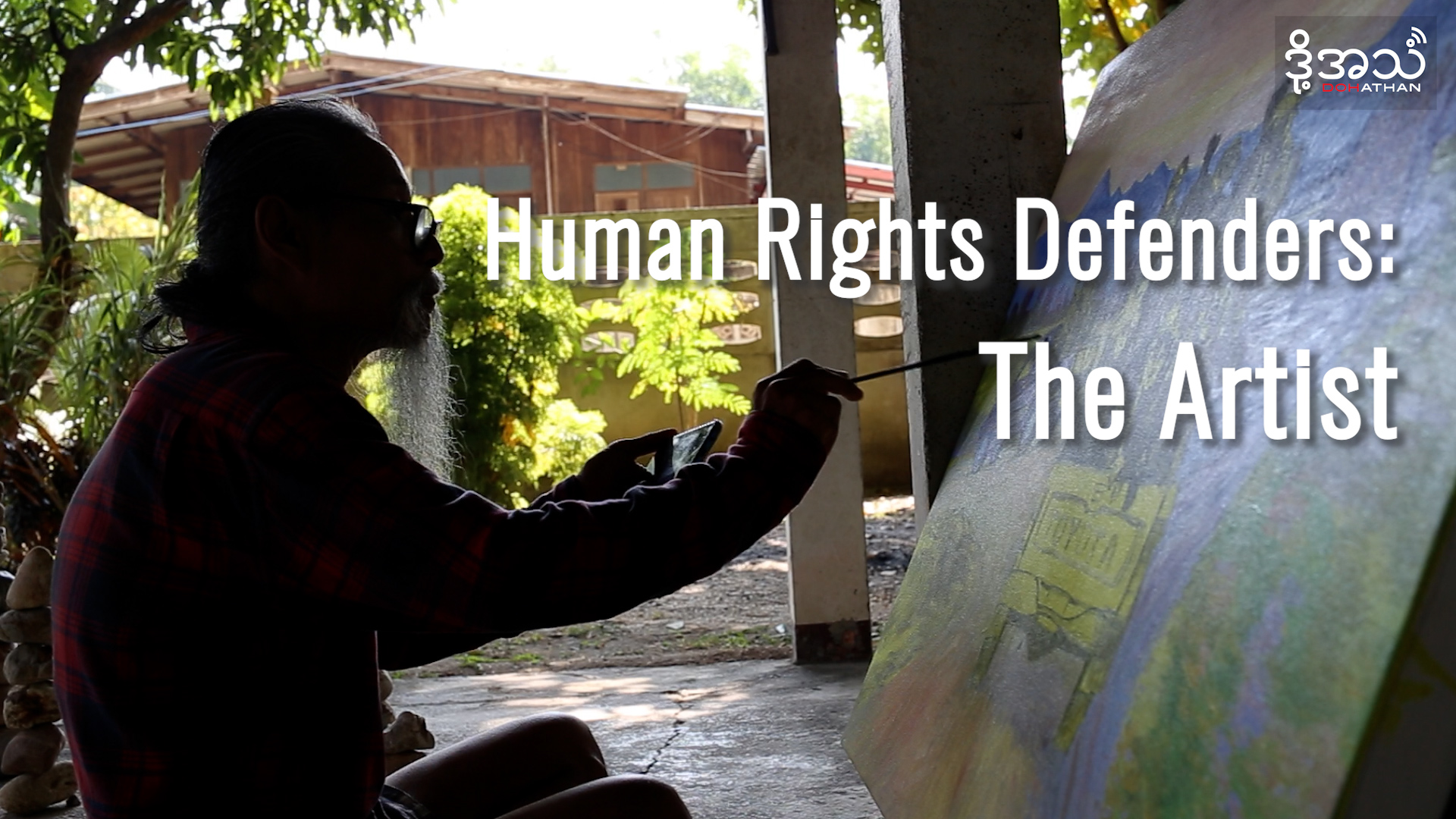By NYAN HLAING LYNN | FRONTIER
NAYPYITAW — Trainee police could soon be learning more about human rights, corruption and sexual violence, under a program backed by the United Nations Office on Drugs and Crime.
Myanmar Police Force and the UNODC announced plans to cooperate on improving training at the country’s seven police academies in Nay Pyi Taw yesterday. The program will get underway on May 30, according to police officials.
The announcement was made at the launch of a new report, Review of Myanmar Police Training System and Recommendations for Improvement.
Mr Jeremy Douglas, the UNODC regional representative for Asia and the Pacific, said the report focused on the need to review and improve the police force’s training methods.
Support more independent journalism like this. Sign up to be a Frontier member.
The new program will focus not only on curriculum but also recruitment and resource management, as well as legal and policy reform in related areas.
Mr Troels Vester, the country manager of UNODC, said international experts would be brought in to help.
“There are no experts in Myanmar to reform and rewrite the curricula so we need experts from other countries,” he said.
The project will see a five-year plan developed by the end of 2016, Vester said. He declined to give a budget. “We have received a proper amount of funding. We can start performing some things now.”
Police Colonel Aung Htay Myint, deputy head of the department of transnational organized crime, said he welcomed the assistance, which would also help the force appoint better instructors and improve training facilities.
And then the training school’s recruitment system, appointment of instructors and upgrading instruction skill and facilities would be carried out, he said.
Police force reform has been on the agenda for several years, but with only limited success.
The previous government outlined plans to dramatically expand the size of the police force in an effort to keep pace with Myanmar’s growing population. Daw Aung San Suu Kyi, in her capacity as leader of the parliament’s Rule of Law, Stability and Peace Committee, also took an interest in the issue.
In early 2014, the European Union launched a US$10 million police reform program that included training in crowd management and human rights. The program was heavily criticised after police launched a violent crackdown on student activists at Letpadan, Bago Region, in March 2015.
A second phase failed to get off the ground because the Ministry of Home Affairs refused to sign a memorandum of understanding that included parliamentary oversight, The Myanmar Times reported last month.







